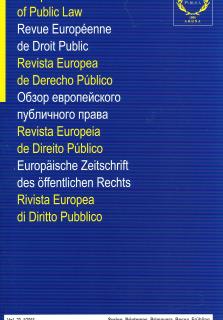
Global Administrative Order
The Netherlands
To what extent is the emergence of a ‘global administrative order’ observed and considered legitimate in the Dutch legal context? The increasing effects of globalisation in the domestic legal system suggest that the conception of the national and the international legal orders as two distinctly separate legal spheres, implied by the Dutch Constitution, does not hold up anymore. The Dutch Constitution provides the general framework within which the national administration is enabled or constrained to cooperate with global administrative bodies. Specific examples concerning the effects of initiatives of international organisations and other global players on national legislation and administrative procedures concern the environment, health, employment, and financial affairs. Yet, recent difficulties in the administrative dealing with global issues at the EU level or at the global level are currently feeding a counter-trend of ‘anti-globalisation’ in Dutch politics and society. For the ‘new administrative law’ to develop further, input from legal scholarship is required to ascertain the legitimacy of evolving practices and provide methodological guidelines for binding and non-binding forms of interaction.





















